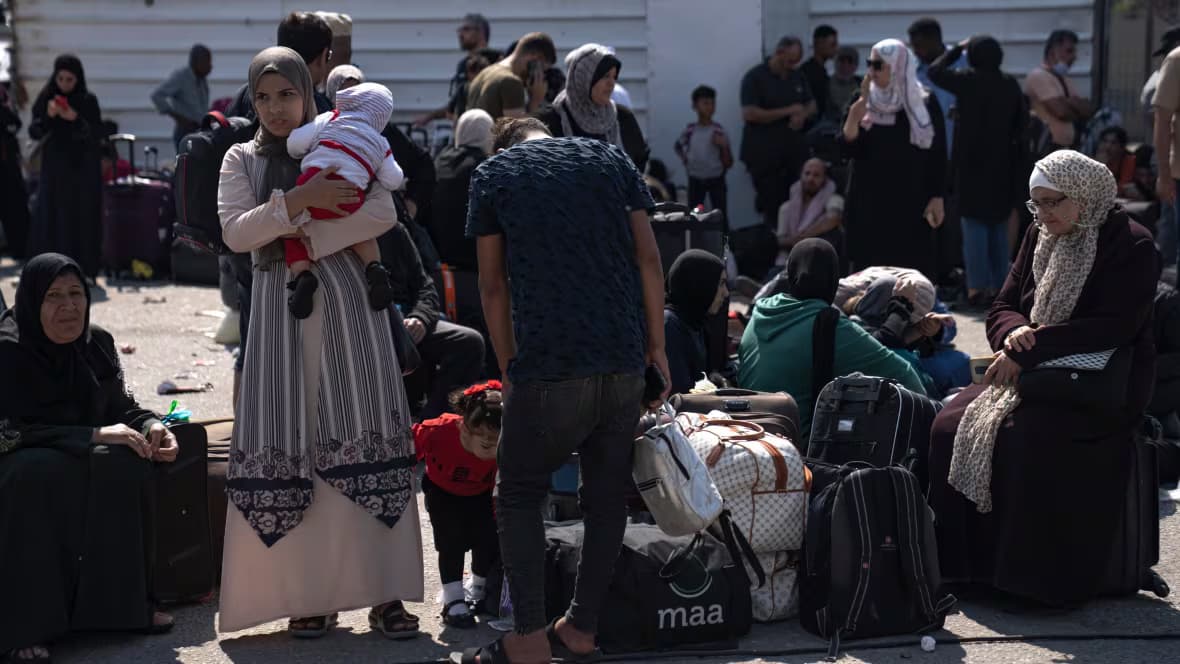We're loading the full news article for you. This includes the article content, images, author information, and related articles.
Families in Kenya with relatives holding Australian visas in Gaza are grappling with anxiety as the Rafah border crossing remains closed, despite some having the necessary paperwork to leave the besieged territory.

Many Kenyans with family connections to Gaza are facing a distressing waiting game, as relatives holding Australian humanitarian visas remain trapped in the war-torn Palestinian territory due to the continued closure of the Rafah border crossing. This situation highlights the complex challenges faced by those seeking to evacuate Gaza, even with valid travel documents.
The closure of the Rafah crossing, controlled by Israeli forces, has left individuals with Australian visas in limbo. For some, like the two nephews of Perth resident Ahmed Abumarzouq, aged 18 and 19, humanitarian visas were granted on Friday, October 17, 2025, two days after a tentative Gaza ceasefire plan was announced. However, the ceasefire has not yet led to the anticipated reopening of the border, leaving them unable to depart.
The movement of people in and out of Gaza has been severely restricted for many years, a situation exacerbated by ongoing conflicts. The Rafah crossing, which connects Gaza with Egypt, is a critical gateway for humanitarian aid and civilian movement, but its operation is frequently disrupted by political and security developments. The current closure underscores the precariousness of life for Gaza's residents and the difficulties faced by international efforts to facilitate safe passage.
Humanitarian organisations and refugee advocates have consistently called for unimpeded access to and from Gaza, citing the dire conditions within the territory. The current situation, where individuals with valid visas are unable to leave, intensifies these calls for greater international intervention and diplomatic efforts to ensure the safe passage of civilians.
For the limited number of individuals eligible for Australian consular assistance – typically those with immediate family members who are Australian citizens or permanent residents – the pathway to Australia remains intricate. However, many, like Abumarzouq's nephews, do not qualify for this direct assistance, further complicating their evacuation efforts. Their only recourse is to await the reopening of the Rafah crossing.
Ahmed Abumarzouq, a chief financial officer with the Western Australian government who experienced multiple wars in Gaza before relocating to Perth in 2014, expressed his frustration. “I was hoping that the border will open and I’d be able to get them out,” Abumarzouq stated, highlighting the helplessness felt by many with family in Gaza.
The immediate future for those trapped in Gaza with Australian visas remains uncertain. Key unanswered questions include the specific conditions under which the Rafah crossing will reopen, the timeline for such an event, and the logistical arrangements for evacuating those with valid travel documents. The role of international diplomacy in negotiating safe passage is paramount.
Kenyans with family in Gaza will be closely watching developments at the Rafah crossing and the broader geopolitical landscape. The ongoing humanitarian crisis in Gaza and the plight of those seeking refuge are likely to remain significant concerns for the international community.
All eyes will be on diplomatic efforts to secure the reopening of the Rafah border crossing and ensure the safe passage of civilians. Any announcements from Israeli or Egyptian authorities regarding border operations will be critical. The actions of international humanitarian organisations and governments in advocating for these individuals will also be closely monitored.
Keep the conversation in one place—threads here stay linked to the story and in the forums.
Sign in to start a discussion
Start a conversation about this story and keep it linked here.
Other hot threads
E-sports and Gaming Community in Kenya
Active 9 months ago
The Role of Technology in Modern Agriculture (AgriTech)
Active 9 months ago
Popular Recreational Activities Across Counties
Active 9 months ago
Investing in Youth Sports Development Programs
Active 9 months ago